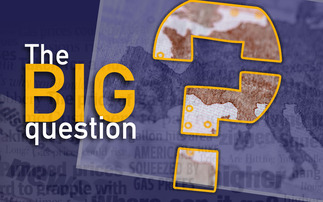Over the past couple of decades, credit rating agencies have been steadily coming into the public consciousness, for a number of reasons.
Their centralised involvement in the recent financial crisis prompted a concerted outcry against the business practices and position of the leading rating agencies Standard & Poor's, Moody's, and Fitch Ratings - the so-called 'Big Three'.
This resulted in the agencies being directly regulated by the Dodd-Frank Act of 2010 in the US and the three major CRA regulations in the EU, before being fined by the U.S. Department of Justice (DoJ) to the tune of over $2bn split between S&P and Moody's.
Moody's China downgrade: 'Economic impact is small, but sentiment impact could be large'
But the position of the agencies within the economy has not been reduced, nor has their ability to misbehave.
In light of this understanding, a number of sovereign nations have decided that their treatment at the hands of these leading US-based agencies is unfair or prejudiced.
As such, they have endeavoured to develop their own rating agencies to counter the global influence of the 'Big Three'.
ACRA-monious beginnings?
However, the way in which these nations decide to do this is crucial and, using Russia's recent foray into this field with its new Analytical Credit Rating Agency (ACRA), we can see that it is vital that one element, more than any other, is visible to investors: that element is perceived independence.
Let's be clear: this notion of 'perceived independence' is not actually important. Quite simply, it is no secret that the leading agencies are not independent - they are paid by the people they rate (known as 'issuer-pays').
However, the Big Three have an air of familiarity that serves to protect them in the eyes of their users - investors - which, apart from the other elements of the 'natural oligopoly' that the rating industry represents, serves to protect them from competition.
That said, the notion of 'perceived independence' paradoxically does affect newcomers to the industry, and we can see that with the recent Russian entrant to the marketplace.
In 2015, Russia issued new regulations to govern the operations of rating agencies within its jurisdiction, with the main elements of the regulations allowing for the Central Bank of Russia to interfere with the actions of agencies more than ever before.
The result, unsurprisingly, was that two of the Big Three immediately vacated Russia (Moody's and Fitch) and have been on an adversarial footing with Russia ever since.
With regards to the new Russian regulations, the first agency to be formally ratified by the Central Bank was not S&P, as one might expect, but a new Russian rating agency known as the ACRA.
ACRA was set up in 2015 and has 27 major Russian financial institutions as its shareholders. Although it only has a small working capital (less than $50m), it has the same stated aims as the leading rating agencies - independence, prevention of conflicts of interests, and transparency.
The Russian government has suggested that it aims to use ACRA as its 'yardstick' and, hopefully, as the vehicle with which the country can demonstrate its creditworthiness to international investors at some point in the future.













